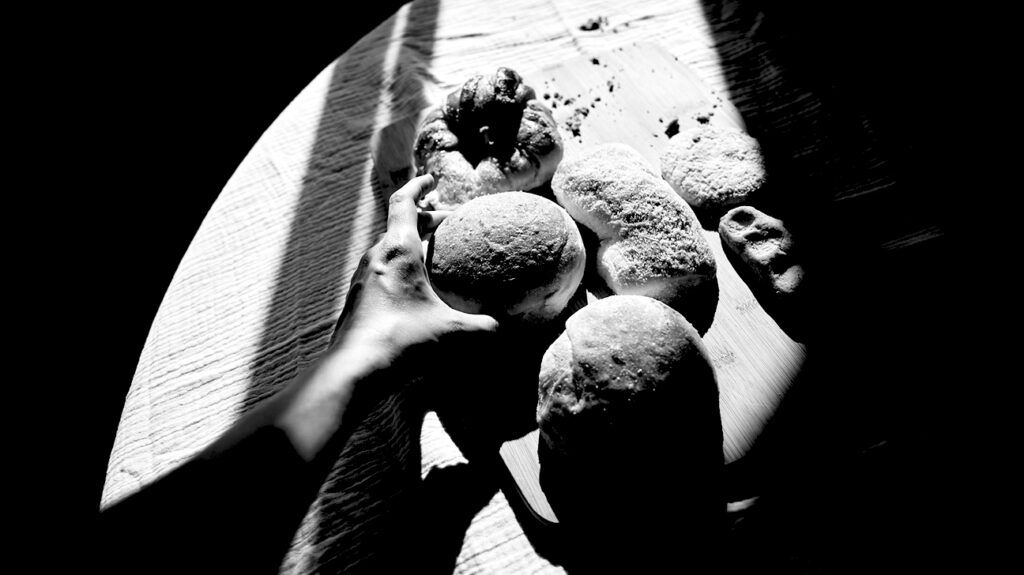Gluten may affect rosacea for some people, and rosacea does increase the risk of celiac disease. Triggers may be different for each person, but trying a gluten-free diet may help people find out if gluten links to their symptoms.
Rosacea is an inflammatory skin condition that can cause redness, increased warmth to the face, visible blood vessels, and acne-like breakouts.
Certain dietary triggers may worsen rosacea or cause flare-ups in some people. It is not clear if gluten worsens rosacea, but there is a link between rosacea and celiac disease.
This article looks at the potential link between gluten and rosacea, which foods to include and avoid in a diet to help rosacea, and other tips for managing rosacea.

It is not clear whether gluten worsens rosacea, but research has shown a link between rosacea and gluten intolerance.
According to a 2023 review, rosacea increases the risk of celiac disease, and both rosacea and celiac disease share similar genetic risk factors.
The link between rosacea and gluten intolerance has led researchers to suggest a gluten-free diet may be beneficial for people with rosacea.
A
Triggers for rosacea may be specific to each person. To find out if gluten worsens their rosacea, people may want to try eliminating gluten to see if it has any effects on their symptoms.
According to a
Females with rosacea may have an increased risk of celiac disease. Studies have also found rates of celiac disease to be higher in people with rosacea compared to those without.
Genetic, environmental, and immune system factors
The exact cause of rosacea is unclear but
According to a
- alcohol
- spicy food
- hot drinks
- foods containing cinnamaldehyde, including tomatoes, citrus fruits, and chocolate
- foods high in histamine, such as processed meat, aged cheese, and wine
- fatty foods, such as fried food, fatty meat, and lard
Foods that may have protective effects against rosacea, particularly rosacea affecting the eyes, include those high in omega-3. This includes foods
- fish and seafood, particularly fatty fish such as salmon, herring, tuna, mackerel, and sardines
- nuts and seeds, such as walnuts, chia seeds, and flaxseed
- plant oils, such as soybean oil, flaxseed oil, and canola oil
- omega-3 fortified foods, such as certain juices, milk, eggs, yogurt, soy drinks, and infant formulas
Reducing sugar intake
Triggers may vary for different people, so it is best to work alongside a healthcare professional to identify the best diet for each individual and help prevent nutritional deficiencies.
The American Academy of Dermatology Association (AAD) recommend the following tips for managing rosacea and preventing flare-ups:
- Protect the skin from the sun and use a broad-spectrum sunscreen of at least 30 SPF every day.
- Reduce stress and find relaxing activities to do regularly to help manage stress.
- Avoid overheating by wearing layers and not staying too close to a heat source, such as radiators or fireplaces.
- Stay cool when exercising, such as lower intensity exercise, exercising in cool water, or drinking cold water.
- Protect the skin from the wind and cold by wearing a silk or acrylic scarf around the face when outdoors.
- Drink warm or cold drinks rather than hot ones.
- Limit or avoid spicy food.
- Limit or avoid alcohol, particularly red wine.
- Use skin care products which do not irritate the skin.
- Avoid astringents, toners, and products containing camphor, menthol, and sodium lauryl sulfate.
- Use rosacea friendly make-up.
- Talk with a doctor if it seems any medications may be worsening rosacea, such as high blood pressure, anxiety, and migraine medications.
People can work alongside a dermatologist to create a personalized rosacea treatment plan for them and work out which triggers may be worsening their rosacea.
Anecdotal reports suggest eliminating gluten may help improve rosacea for some people, but there is little evidence on the exact link between gluten and rosacea.
Research does not suggest gluten is a common trigger for rosacea, but there is evidence to show rosacea can increase the risk of celiac disease.
If people think gluten may be affecting their rosacea, they may want to try cutting out gluten and monitoring symptoms to see if there is an improvement.
Working with a healthcare professional can help people find any dietary triggers and help prevent nutritional deficiencies with an elimination diet.
